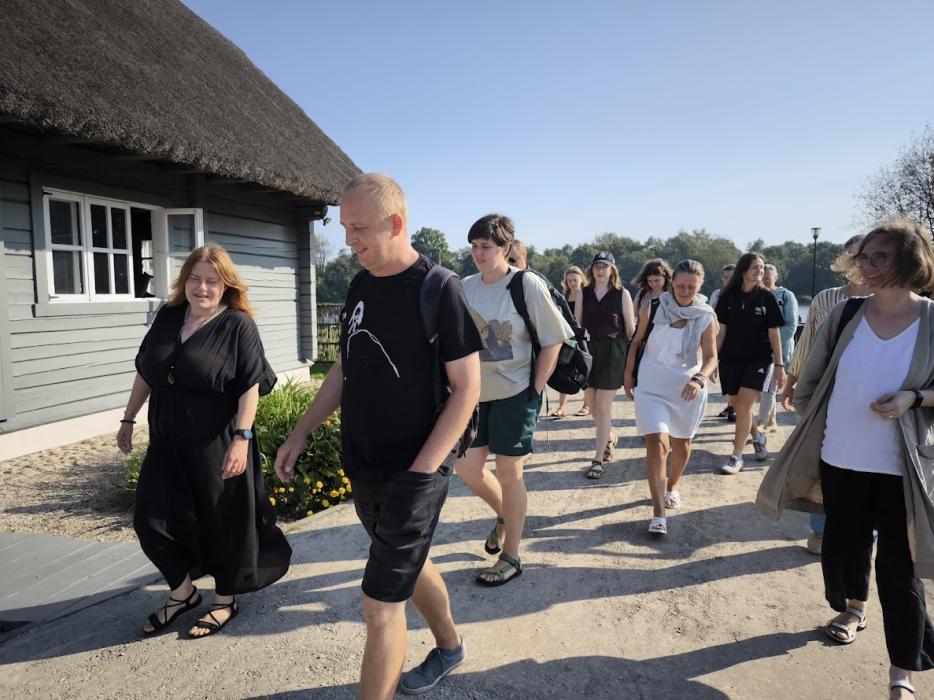Representatives from various fields enhance their knowledge of intangible cultural heritage and climate change

At the end of August, a summer course “Intangible Cultural Heritage and Climate Change” took place in Riga and Carnikava, offering lectures and workshops that explored both the direct and indirect impacts of climate change on living heritage. The course was led by the team of the Green Heritage project, implemented by the Institute of Literature, Folklore and Art of the University of Latvia (UL ILFA).
On the first day, in the opening lecture at the Archives of Latvian Folklore, Rita Grīnvalde introduced participants to the understanding and legal framework of intangible cultural heritage, also highlighting how the Green Heritage project contributes to advancing this knowledge across Europe. Workshops led by Elīna Gailīte encouraged deeper reflection on the relationship between cultural heritage and technology. Meanwhile, Kitija Balcare introduced the topic of climate change and climate justice, giving participants the chance to test out digital tools for assessing climate-related risks and modeling possible future scenarios in relation to the sustainability of living heritage traditions.
On the second day, under the guidance of Sandis Laime, participants turned to identifying climate change–induced risks within living heritage, as well as examining traditions from various countries already affected by climate change. At the Carnikava Local History Center, hosted by its head Olga Rinkus, participants explored the local tradition “Lamprey Catching and Processing Skills in Carnikava”, which has been part of Latvia’s National Intangible Cultural Heritage Inventory since 2019. The course concluded with a conversation with local fishermen Aldonis Lūkins and Artūrs Jakobsons, followed by a boat trip along the Gauja River and to lamprey fishing sites.
“We hope this summer course will take root in participants’ professional practice, encouraging them not only to continue studying the relationship between living heritage and climate change, but also to recognize early on the sustainability risks of specific traditions, and to seek solutions for adapting to changing conditions,” noted Rita Grīnvalde.
Participants highly valued the opportunity to explore the theme not only in theoretical lectures and thematic workshops, but also by meeting tradition bearers and like-minded people from different fields in person. The course brought together seventeen participants, including students of cultural and environmental sciences, sector professionals, intangible heritage custodians, municipal employees, and other interested individuals engaged with cultural heritage and climate issues.
Course participants and anyone interested will be able to continue learning on the topic this autumn by joining an international online course, available from mid-September at greenheritage-project.eu.
The summer course is part of the international ERASMUS+ project “Green Heritage: The Impact of Climate Change on Intangible Cultural Heritage”, which brings together partners and researchers from Latvia, Greece, Italy, Spain, and Belgium to draw attention to the direct and indirect effects of climate change on intangible cultural heritage and its sustainability. Latvia is represented in the project by UL ILFA, which organizes the in-person summer course for participants from Latvia.